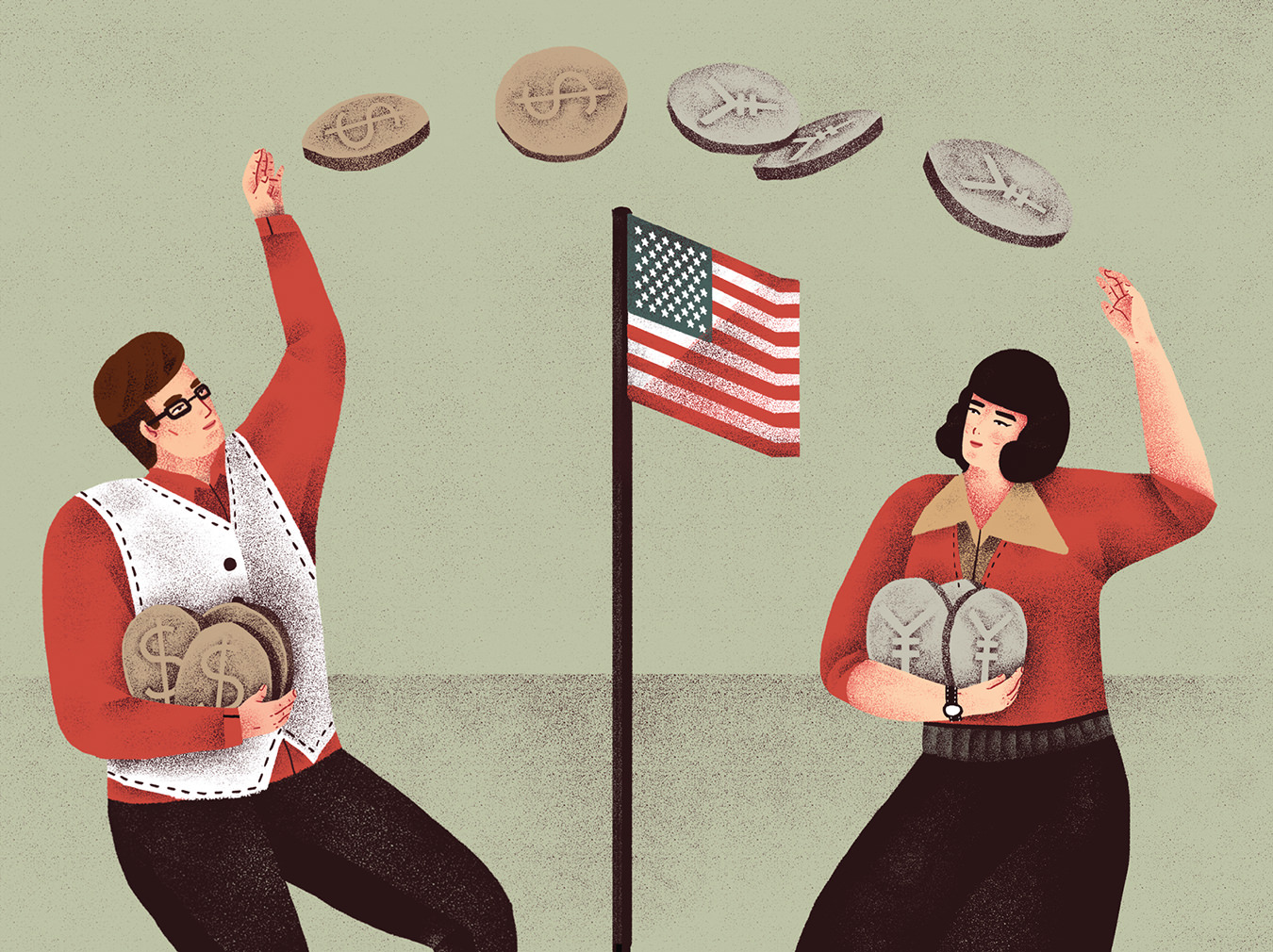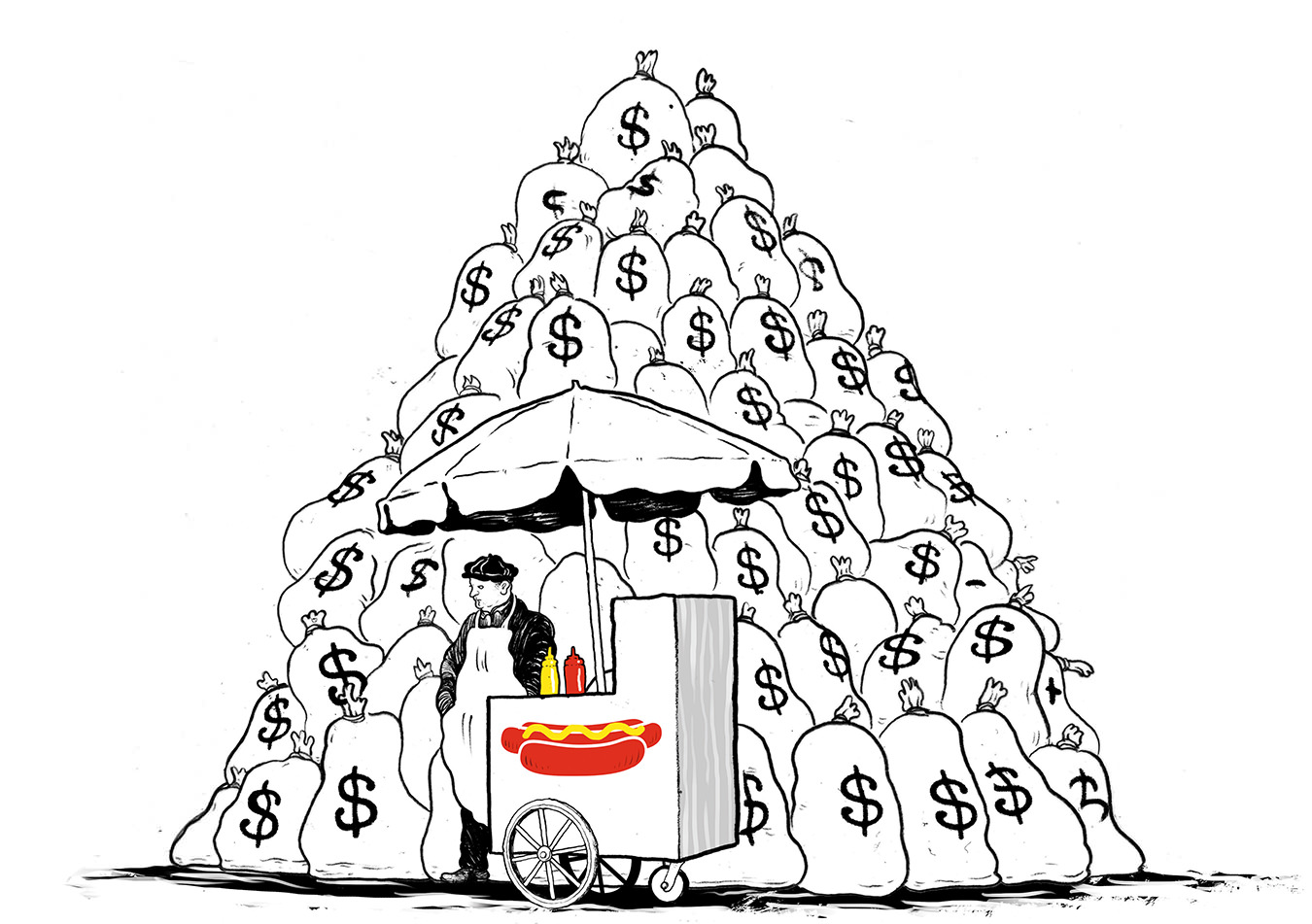Show Me the Yuan
Canada becomes a trading hub.

It was the kind of story that sends the financial press into spasms of ecstasy. Back in November, a smiling Mr. Harper stepped in front of the cameras at the Great Hall of the People and announced that Canada secured the rights to become the first North American trading hub for the renminbi, China’s official currency.
Most Canadians likely reacted to the deal by immediately turning to the sports section. Fair enough: trade in the renminbi (or yuan, the name of the currency’s principal unit) amounts to all of 0.4 per cent of the total volume of foreign currency transactions in Canada. But that attitude may change the next time we walk into a grocery, an electronics retailer, or one of the many dollar stores that have sprouted like weeds after a hard rain these past few years. Truth be told, the deal is likely to make life a little cheaper for nearly anyone who sells or buys goods from China—and these days, nearly anyone means pretty much everyone.
Under terms of the deal, Canadian companies will be permitted to buy renminbi using loonies, rather than by taking the additional step of buying U.S. dollars first. Good news there—cutting out the middleman leads to lower costs for both buyer and seller. So much so that the Canadian Chamber of Commerce estimates that Canadian importers could stand to save about $2.75-billion a year.
The news is also good for investors. Going forward, Canadian institutional investors (pension funds, endowments, trustees, money managers, etc.) will be able to buy up to 50-billion yuan (about $9.9-billion) of Chinese stocks and bonds directly. Again, cutting out the brokers and traders and other toll-bridge businesses in the middle of the transaction means savings for everyone.
All of it means big bucks—or yuan, if you prefer. In fact, the Canadian Chamber of Commerce estimates the hub’s economic benefits will amount up to $32-billion in direct trade benefits over the next decade. That’s on top of indirect benefits such as establishing Canada’s financial street cred, diversifying trade beyond our big neighbour to the south, improving relationships with the world’s up-and-coming power, that kind of thing.
And then there’s the politics. The yuan is not yet a viable alternative to the U.S. dollar. But one day—soon—it will be; the mandarins inside the Great Hall know this as much as any forex trader. So why not take the opportunity now to make a statement before the market forces you to open up a hub in San Francisco, New York, or likely both?
Instead of awarding the symbolic first North American trading hub to one’s chief economic and political rival, why not choose the nation right next door—a nation competent without being threatening; economically significant without being a titan of world trade; powerful enough without being at the apex of world power. So much the better for us. When it comes to foreign exchange—whether economic or political—it’s the guys in the middle who profit most.




